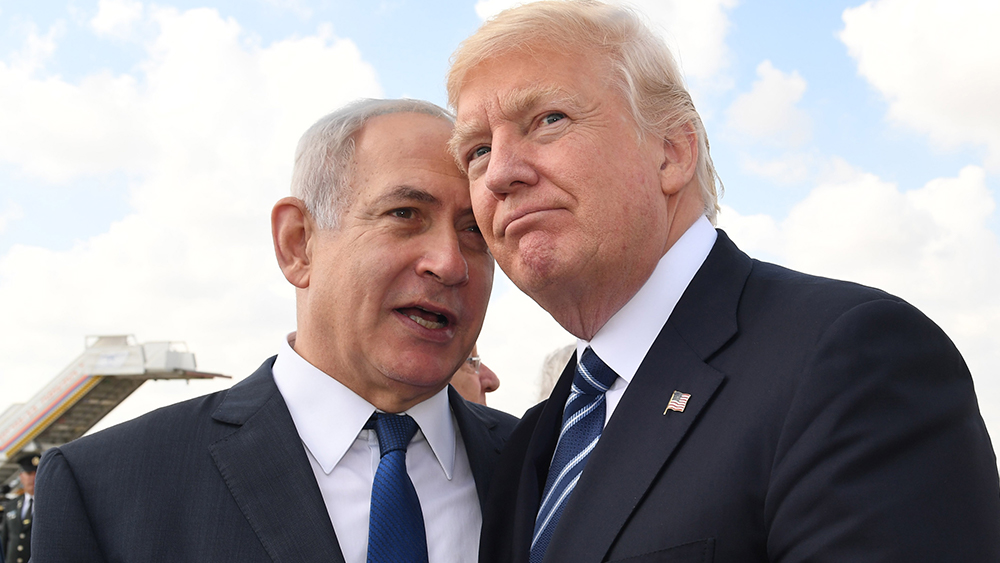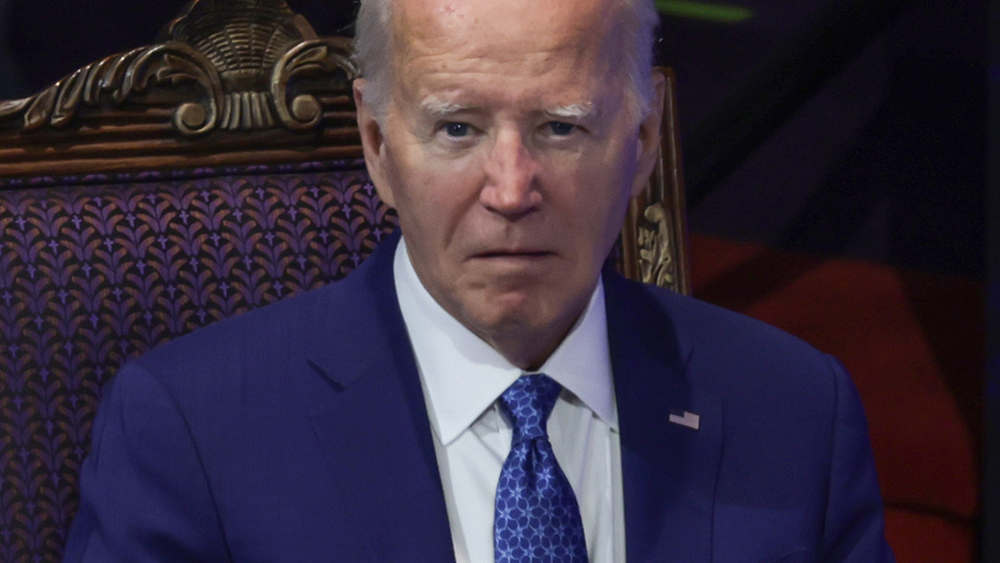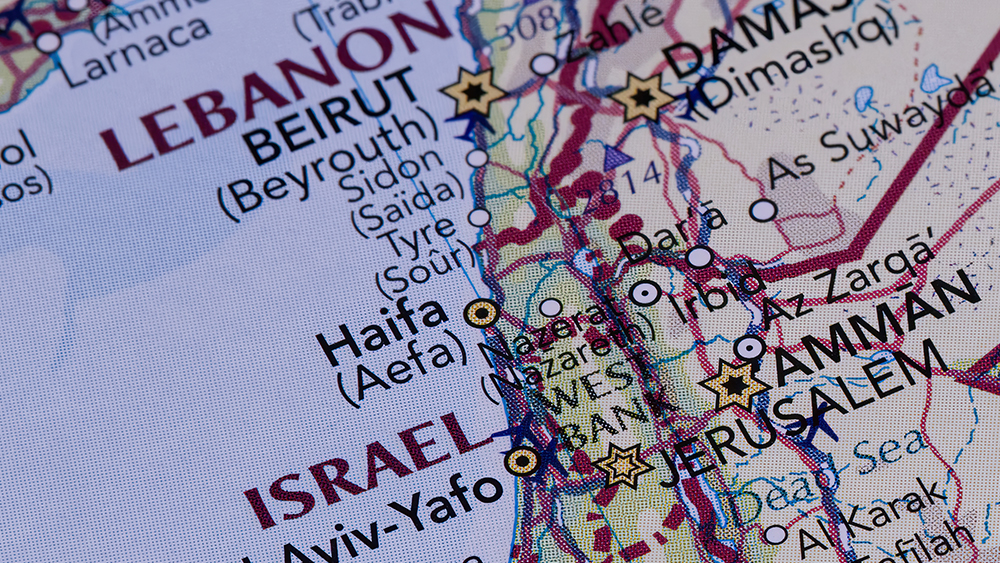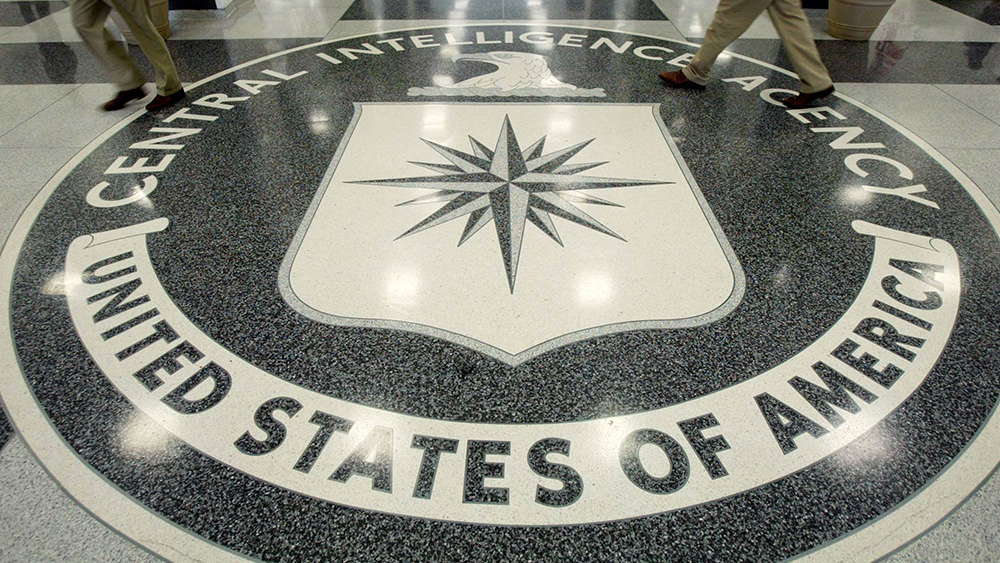 Parler
Parler Gab
Gab
- Trump rejected an Israeli proposal for a military strike against Iran’s nuclear program, favoring diplomacy.
- Netanyahu planned bold military actions, including commando raids with U.S. air support, to delay Iran’s nuclear progress.
- Trump’s decision reflects reluctance toward new Middle East conflicts, prioritizing economic and diplomatic pressure over force.
- Critics argue Netanyahu’s aggressive stance worsens tensions while Iran faces economic strain, making negotiations favorable.
- If talks fail, Trump retains military options, though Israel could act alone—risking unintended U.S. involvement.
Netanyahu’s push for military action
Israeli Prime Minister Benjamin Netanyahu had reportedly drafted extensive military plans to strike Iranian nuclear sites in early May, aiming to delay Iran’s nuclear program by at least a year. The proposals included a combination of airstrikes and commando raids, with the expectation that the U.S. would not only approve the operation but also provide critical logistical support. One particularly audacious plan involved Israeli commandos infiltrating Iranian nuclear facilities with U.S. air cover—a scenario that U.S. officials feared could provoke a broader regional war. Netanyahu reportedly argued that Israel could not afford to wait for diplomacy, given Iran’s advancing uranium enrichment, and that a decisive military strike was necessary to maintain regional stability. Yet Trump, after internal discussions with top advisors, including Vice President J.D. Vance and Defense Secretary Pete Hegseth, concluded that a diplomatic approach was preferable—at least for now. "The president has authorized direct and indirect discussions with Iran to make this point clear," a National Security Council spokesperson said.Trump’s calculated approach
Trump’s rejection of Netanyahu’s proposal reflects a pragmatic assessment of both geopolitical risks and domestic priorities. After withdrawing from the Obama-era Iran nuclear deal in 2018 and overseeing a "maximum pressure" campaign of sanctions, the administration now sees an opportunity to negotiate from a position of strength—especially as Iran faces economic strain and military setbacks. Critics of Netanyahu’s strategy argue that Israel’s aggressive posture has only exacerbated regional tensions. The Israeli government’s hardline policies, including its ongoing military operations in Gaza, have drawn widespread condemnation for their disproportionate humanitarian toll. Reports from human rights organizations describe airstrikes targeting civilian infrastructure, mass displacements, and a mounting death toll—scenarios that have eroded Israel’s international standing.The broader Middle East picture
Trump’s cautious approach highlights a growing hesitancy among U.S. leaders to be entangled in another Middle Eastern quagmire. With domestic challenges—from economic recovery to infrastructure renewal—competing for attention, the White House seems unwilling to commit to a major military engagement unless absolutely necessary. Meanwhile, Netanyahu’s fixation on Iran has drawn scrutiny. Despite Israel’s formidable military capabilities, experts argue that without U.S. backing, its ability to meaningfully degrade Iran’s nuclear program is limited. The prime minister’s demands—including a recent call for any nuclear deal to involve dismantling Iran’s facilities under U.S. supervision—reflect an uncompromising stance that even some American officials find unrealistic. For now, the U.S. and Israel appear on divergent paths, with Trump prioritizing negotiations and Netanyahu pushing for military action. The coming weeks will test whether Tehran is genuinely open to a deal or if it merely seeks to buy time while continuing its nuclear advancements. If diplomacy fails, Israel may yet move unilaterally—a scenario that could drag the U.S. into an unwanted conflict. But Trump’s message is clear: America will not be rushed into war when diplomacy still holds promise. Sources for this article include: RT.com NYTimes.com Newsweek.com TheCradle.coDemocrats’ post-election strife intensifies as Biden’s public comeback fractures party unity
By Willow Tohi // Share
Housing relief in sight as foreign buyers retreat, deportations rise and Airbnb pulls back
By Willow Tohi // Share
Economic fallout and strategic stakes mount as U.S.-China trade tensions escalate
By Willow Tohi // Share
Israel’s relentless attacks on Lebanon defy ceasefire, killing civilians and soldiers
By Cassie B. // Share
Trump administration considers ABANDONING Ukraine peace talks if no progress is made
By Ramon Tomey // Share
Governments continue to obscure COVID-19 vaccine data amid rising concerns over excess deaths
By patricklewis // Share
Tech giant Microsoft backs EXTINCTION with its support of carbon capture programs
By ramontomeydw // Share
Germany to resume arms exports to Israel despite repeated ceasefire violations
By isabelle // Share










